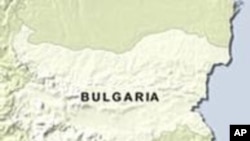<!-- IMAGE -->Twenty years ago, democratic revolutions throughout Central Europe released the region from the grip of Communism. Among these countries was Bulgaria whose Communist Party voluntarily gave up its absolute hold on power in February 1990. The country went on to hold its first free elections in June 1990, an event that paved the way for Bulgaria's multiparty democracy of today.
The transition to democracy and a market economy has not always been easy, but Bulgaria has made great strides. U.S. Secretary of State Hillary Clinton recently met with Bulgarian Foreign Minister Rumiana Zheleva at the State Department on November 23rd. Bulgaria has been a NATO ally since 2004 and a member of the European Union since January 2007.
Bulgarian troops fought beside U.S. troops in Iraq and approximately 500 are currently serving in Afghanistan as part of the NATO mission there. Bulgaria has been a source of peace and stability in the region and has contributed peacekeeping forces in Bosnia and Kosovo, as well as in Iraq and Afghanistan. Secretary Clinton emphasized that the U.S. appreciates Bulgaria's service and sacrifice in these missions.
Secretary Clinton commended Bulgaria on its efforts to root out corruption and to end impunity for public officials. The Bulgarian government has also made an effort to bring greater transparency to the energy sector.
American companies have significant investments in Bulgaria. The U.S. is the only non-European country ranked among Bulgaria's top 10 investors. Even so, Foreign Minister Zheleva is seeking more U.S. investment, especially in Bulgaria's energy sector. Ms. Zheleva said she would like to see American companies consider greater participation in the construction of gas and oil pipelines and in the building of a second nuclear power plant in Bulgaria.
Recognizing Bulgaria's desire to participate in the Visa Waiver Program, Secretary Clinton said the U.S. will do all it can to assist Bulgaria in meeting the necessary criteria.
The United States looks forward to expanding its military, business, and people-to-people contacts with Bulgaria in the years ahead.
The transition to democracy and a market economy has not always been easy, but Bulgaria has made great strides. U.S. Secretary of State Hillary Clinton recently met with Bulgarian Foreign Minister Rumiana Zheleva at the State Department on November 23rd. Bulgaria has been a NATO ally since 2004 and a member of the European Union since January 2007.
Bulgarian troops fought beside U.S. troops in Iraq and approximately 500 are currently serving in Afghanistan as part of the NATO mission there. Bulgaria has been a source of peace and stability in the region and has contributed peacekeeping forces in Bosnia and Kosovo, as well as in Iraq and Afghanistan. Secretary Clinton emphasized that the U.S. appreciates Bulgaria's service and sacrifice in these missions.
Secretary Clinton commended Bulgaria on its efforts to root out corruption and to end impunity for public officials. The Bulgarian government has also made an effort to bring greater transparency to the energy sector.
American companies have significant investments in Bulgaria. The U.S. is the only non-European country ranked among Bulgaria's top 10 investors. Even so, Foreign Minister Zheleva is seeking more U.S. investment, especially in Bulgaria's energy sector. Ms. Zheleva said she would like to see American companies consider greater participation in the construction of gas and oil pipelines and in the building of a second nuclear power plant in Bulgaria.
Recognizing Bulgaria's desire to participate in the Visa Waiver Program, Secretary Clinton said the U.S. will do all it can to assist Bulgaria in meeting the necessary criteria.
The United States looks forward to expanding its military, business, and people-to-people contacts with Bulgaria in the years ahead.




